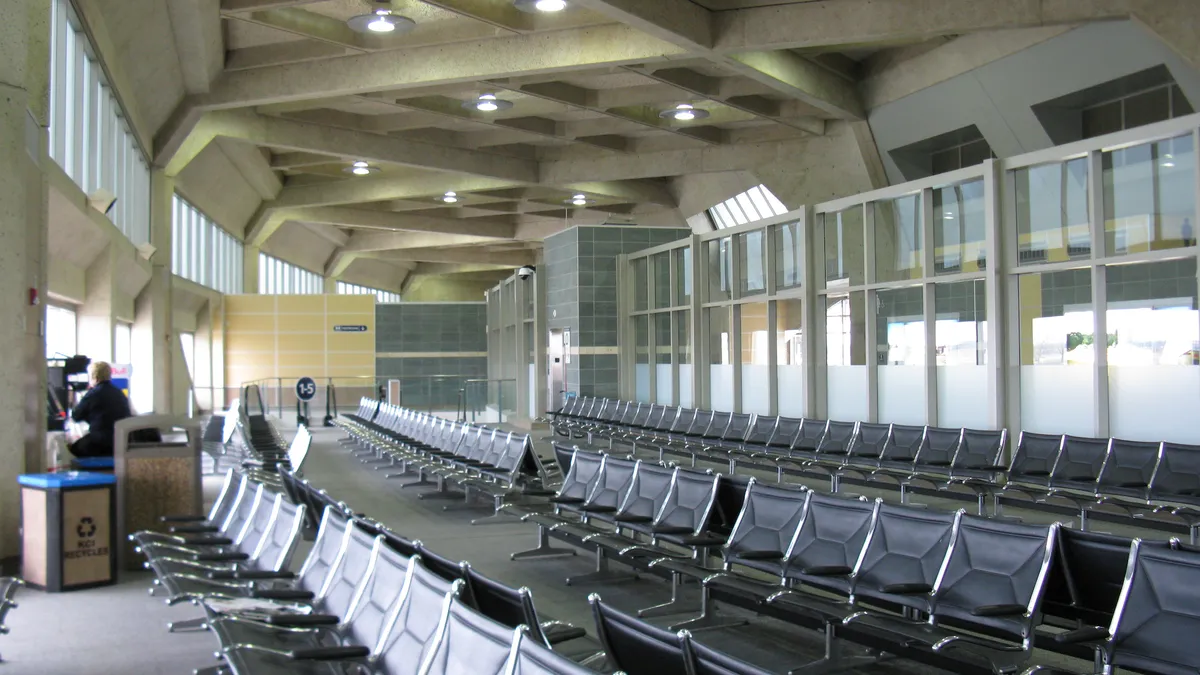Dive Brief:
- Kansas City, MO residents voted overwhelmingly in favor of pushing forward with a $1 billion revamp of the city-owned airport, The Kansas City Star reported.
- City leaders claim the project will be funded by the airlines and user fees, not taxes.
- In addition to infrastructure and amenities upgrades, the project would involve replacing the 45-year-old airport's three terminals with one large terminal.
Dive Insight:
Proponents of the ballot measure had said the airport's current clover-like design inhibits future expansion, with many airlines reporting being at capacity in the airport's present state. Many have also charged the airport's design with its inability to add extra routes or new airlines, limiting its ability to draw in tourists and business travelers. A lack of amenities, such as restaurants and shops, has also made it unattractive to travelers.
In addition to promoting growth at the airport, city leaders say having a world-class airport attracts businesses and jobs to a city. The mayor says the airport renovation could also boost security.
But amid these proposed changes, Kansas City is dealing with a wave of citizen distrust of government. And accusations about favoritism during the bidding process for an airport developer and secret meetings during the planning process haven't helped.
In September, the city council gave the green light to its selection committee's pick Edgemoor Infrastructure & Real Estate to finance, design and build a $1 billion terminal at the airport. Edgemoor had ranked third behind separate ventures led by AECOM and local bidder Burns & McDonnell, leading to concerns over the validity of the awards process. The city must still complete and sign off on negotiations with the consortium in a memorandum of understanding before construction can move forward on the project.
Extensive terminal projects like KCI's can amount to decades' worth of revenue for the teams chosen to perform the work — if that work is delivered under a public-private partnership (P3). The delivery method, previously floated as an attractive option for revamping the nation's crumbling infrastructure, may not be tapped by the Trump administration on the national scale.
Still, P3s' use in state and municipal infrastructure projects will likely continue to pick up, Lee Weintraub chair of the public private partnership practice at Florida-based Becker & Poliakoff, told Construction Dive. States like New York and Colorado are capitalizing on the method with their more than $1 billion terminal revamps, while others have turned to P3s for state highway and bridge overhauls.
It's unclear if city leaders will continue to pursue it or if they will explore other options.











